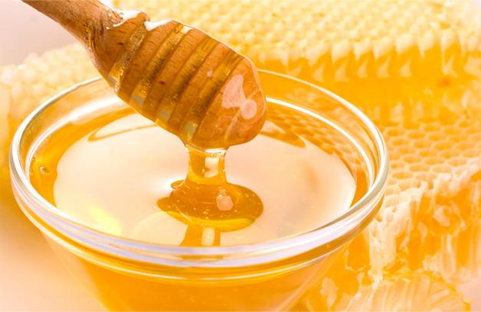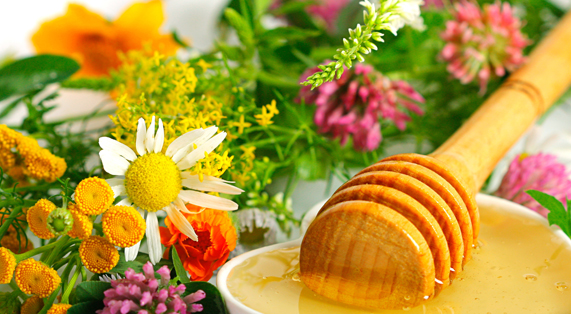النشاط المضاد للبكتيريا للعسل الليبي ضد البكتريا العصوية سالبة الجرام: عامل معالجة محتمل للأمراض المعدية The Antibacterial Activity of Libyan Honey against Gram Negative Bacilli: Potential Treatment Agent for Infectious Diseases
النشاط المضاد للبكتيريا للعس
The Antibacterial Activity of Libyan Honey againstل الليبي ضد البكتريا العصوية سالبة الجرام: عامل معالجة محتمل للأمراض المعدية
نهى المرابط ، محمود بن شعبان ، بسمة دورو ، بشير عبد اللطيف ، سارة فوش ، محمد الإمام
نبذة مختصرة
الأهداف: العسل هو مصدر غني للعديد من المركبات التي تظهر خصائص مضادة للميكروبات ، المضادة للالتهابات والمؤيدة للأوعية. إن ظهور مقاومة المضادات الحيوية في مجموعة واسعة من مسببات الأمراض البكتيرية قد ولّد اهتمامًا متجددًا بالمضادات الميكروبية الطبيعية. كان الهدف من هذه الدراسة هو تقييم النشاط المضاد للبكتيريا للعسل الليبي في المختبر. المنهجية: تم اختبار النشاط المضاد للبكتيريا للعسل الليبي المختار بما في ذلك الربيع الليبي ، الصدر ، الزعتر والحنون (بنسبة 25 ٪ ، 50 ٪ ، 75 ٪ و 100 ٪ (وزن / حجم)) ضد اليرسينيا القولون المعوي ، القولونية و Proteus mirabilis باستخدام آجار اختبار نشر جيد. تم استخدام قياس منحنيات النمو البكتيري الأسي لتحديد التأثيرات على نمط نمو الميكروبات الطيفي عند 600 نانومتر. بالإضافة إلى ذلك ، تم استخدام أساليب العد لوحة لتعداد آثار العسل على العد البكتيرية قابلة للحياة. النتائج والمناقشة: عسل عكسي نمو البكتيريا تدريجيا مع تركيزات أعلى. هذا التأثير كان متغيرا تبعا لنوع العسل. على سبيل المثال ، أظهر العسل الصدري أعلى مستويات التثبيط 21.3 ملم 0.8 مقابل P. mirabilis متبوعًا بالزعتر (21 ملم 0.5) والربيع (20 ملم 0.5). عرض العسل من الهانون فقط تأثيرات ضد الإشريكية القولونية (14 ملم 0.5 و 8 ملم 0.4 عند 100٪ وزن / حجم و 75٪ وزن / ث ، على التوالي). وقد أدى الصقر والربيع وعسل الزعتر إلى خفض كبير في منحنى نمو البكتيريا من نوع Yersinia enterocolitica (p <0.05). جميع العسل اختبارها انخفاض كبير في نمو E. كولاي من 5hrs مقارنة بعينات السيطرة (P <0.05). الخلاصة: أظهر كل اختبار العسل تثبيط نمو البكتيريا. كانت العقاقير المركزة أكثر فاعلية ضد اليرسينيا القولون المعوية ، والإشريكية القولونية و Proteus mirabilis. كانت فعالية أنواع العسل المختلفة تعتمد على تركيز العسل وأصله.
The Antibacterial Activity of Libyan Honey against Gram Negative Bacilli: Potential Treatment Agent for Infectious Diseases
Nouha Elmarbet1 , Mahmoud Ben Shaban1 , Basma Doro2*, Bashir A. Lwaleed3 , Sarah Fouch4 and Mohamed Elemam
ABSTRACT
Aims: Honey has is a rich source of many compounds that exhibit anti-microbial, anti-inflammatory and pro-angiogenic properties. The emergence of antibiotic resistance in a wide variety of bacterial pathogens has generated renewed interest in natural antimicrobials. The aim of the present study was to assess the antibacterial activity of Libyan honey in vitro. Methodology: The antibacterial activities of selected Libyan origin honey including Libyan Spring, AL-Sader, Thyme and Al-Hanone (at 25%, 50%, 75% and 100 % (w/v)) were tested against Yersinia enterocolitica, Escherichia coli and Proteus mirabilis using agar well-diffusion assay. The measurement of exponential bacterial growth curves was used to determine the effects on the microbial growth pattern spectrophotometrically at 600 nm. In addition, plate count methods were used to enumerate the effects of honey on the viable bacterial count. Results and Discussion: Honey progressively inhibited bacterial growth at higher concentrations. This effect was variable depending on the honey type. For example, Al Sader honey showed the highest inhibition zones 21.3 mm 0.8 against P. mirabilis followed by Thyme (21 mm 0.5) and spring (20 mm 0.5). Al-Hanone honey only exhibited effects against E. coli (14 mm 0.5 and 8 mm 0.4 at 100% w/v and 75% w/v, respectively). The Al Sader, spring and Thyme honey significantly reduced the Yersinia enterocolitica bacteria growth curve (p<0.05). All tested honey significant reduced E. coli growth from 5hrs compared to the control samples (p<0.05). Conclusion: All honey tested showed inhibition of bacterial growth. Concentrated honeys were more effective against Yersinia enterocolitica, Escherichia coli and Proteus mirabilis. The efficacy of different types of honey was dependent on the honey concentration and origin.




